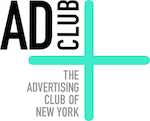Reflections of a Young Advertising Professional
As The AD Club concludes the third week of the A&M Series, a seven-week course offering presentations from masters of the industry who are redefining our business, audiences have already gained tremendous insights and access to some of the brightest minds in advertising and marketing. Kicking off the series on October 7th, Michael Duda, Chief Executive Officer of Johannes Leonardo, discussed the fundamentals of the business and how to transcend the hype.
Attendee Patricia Garcia, Marketing Assistant at NTENT, reflected on the valuable takeaways from the evening. Read more below!
Reflections of a Young Advertising Professional
Patricia Garcia, Marketing Assistant at NTENT
As someone who works in marketing for a digital advertising start up, NTENT, my job is to take these learnings and implement them into our business model while we work to cement our brand. I look forward to applying what I learned from this discussion to internal conversations at my company and am eager to continue to develop as a young digital advertiser with The ADVERTISING Club of New York’s Advertising & Marketing Series. Here were my key takeaways:
The Advertising Space is Cluttered. 80% of CEOs think their products are different and one-of-a-kind, but only 8% of consumers agree with them. So what’s the issue? In our age of information, consumers are constantly being bombarded by messages from various companies all claiming to do the same thing, leading to a confusion of brands.
Your Brand is Everything. What is a brand? A brand is everything – your employees, mission statement, set of values, site and product experience. Even the intangible emotional aspects associated with a brand adds to your brand. Duda believes: the most potent marketing strategy is when your brand strategy equals your business strategy. In his opinion, a brand can be even more powerful and elevate a company further than the actual products.
- BRAND > PRODUCT
- Duda explained that often times, a company’s brand or perceived value affects a consumer’s decision to purchase or not. You might have the best product in the world, but if nobody knows what it is or understands why they should want it, no one is going to buy it.
- STORY > ATTRIBUTES.
- Creating a good brand story can be even more effective in increasing sales than focusing solely on product attributes. TOMS is the perfect example of this—the brand has seen huge success by focusing less on their shoes and more on the fact that they will donate one pair for every pair sold.
- BRAND VALUE > SALES.
- A brand’s perceived value can not only elevate sales, but can also be more valuable than sales generated. A Coca-Cola Executive explained that “if Coca-Cola were to lose all of its production-related assets in a disaster, the company would survive. By contrast, if all consumers were to have a sudden lapse of memory and forget everything related to Coca-Cola, the company would go out of business”.
It’s Easier to Create a Product Than to Convince People to Want it. A good brand strategy can help your business stand out from your competitors by adding value to your offer and connecting to and engaging with your consumers. Duda quoted Apple’s co-founder, Steve Wozniak, in saying that “it’s a lot easier to think of an app and write it than to convince people to buy it.”

